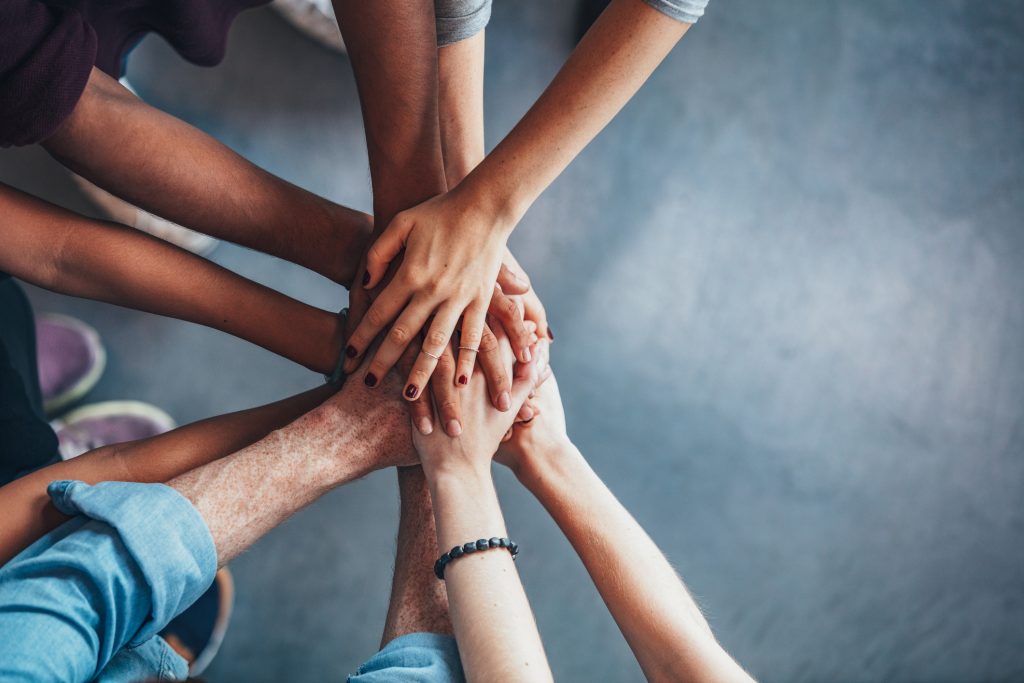Author: Justin Mckibben
Studying Compassionate Goals
A recent study published in the Journal of Clinical Psychology actually states that compassionate goals we set are about
“- striving to help others and avoiding selfish behavior” for example, “making a positive difference in someone else’s life.”
Researchers here measured how participating in self-image goals and compassionate goals had an impact on symptoms of depression and anxiety, along with their conflict with others.
This study concluded that its results suggest there is a very real relevance of self-image and compassionate goals for the interpersonal maintenance of issues like depression and anxiety.
Principally, the results held some pros and cons for people with anxiety. The downfall is that trying to boost self-image by avoiding vulnerability backfires, leaving people more depressed and anxious. This can create a difficult cycle to escape from emotionally.
The good news is that by focusing on helping others, we make everyone involved, including ourselves, feel better. This is because showing compassion through action doesn’t just relieve our anxiety or depression in the moment, but it helps us build our relationships, which can reduce anxiety and depression as they grow stronger and healthier. It is a win-win. In recovery from drugs or alcohol, we should take all the wins we can get.
4 Ways to Help Others that Help Us
If you want to utilize acts of kindness to help you grow in your recovery, there are plenty of ways to do it. Here are just 4 examples of things you can do to help others that will help you.
-
Making constructive comments to others
”Words are singularly the most powerful force available to humanity.”
-Yehuda Berg
That statement is no exaggeration. If the pen is mightier than the sword, the spoken word is truly the undisputed champion.
In recovery use your words to help others. Make constructive comments that serve to build others up, while pointing out their strengths and celebrating their successes. This helps us develop a habit of focusing on the good in one another and ultimately in our communities and our lives. It can also build up our relationships to give us strong support.
-
Having compassion for others’ mistakes
“Experience is simply the name we give our mistakes”
-Oscar Wilde
For a lot of people, it is already hard enough to accept their mistakes. Most of us are our worst critics. No one likes people pointing out their shortcomings. We all make mistakes. Try to be compassionate about it when others slip up.
Why is it important to show companion when someone else makes a mistake? Because not only does giving someone an empathetic response make them feel better, it also reinforces our relationship with them. It shows those around you that you are understanding and humble enough to support someone through their mistake without shaming them or holding it over their head.
In recovery, this means a lot because it is important to remember that we are also a work in progress. We have our own faults, and if we want to build a new life we have to move on from the old. Compassion can even help others show you the same support when it’s your turn to mess up.
-
Don’t be self-centered
“A selfish man is a thief”
-Jose Marti
In most recovery fellowships there is an emphasis on avoiding the self-centered behavior. Being self-centered is never really beneficial in the long-term, even if it helps you with some level of instant gratification. In addiction recovery, being so self-involved can be counter-productive to healthy growth.
Surely it is ok to take care of yourself and honor yourself. But being self-centered makes it less about self-care and more about self-seeking and being inconsiderate.
In fact, high levels of depression and anxiety tend to make us turn inward and focus on ourselves even more. The worse we feel the more isolated we become. Being considerate of others and finding a way to help them can actually relieve anxiety and depression by turning that energy outward.
In recovery, we should think of others as we improve ourselves. When we realize we must make choices and take action to benefit people other than ourselves, our compassion gives us perspective.
-
Avoiding harming others
“If you can, help others; if you cannot do that, at least do not harm them.”
-Dalai Lama
Last but certainly not least, we can easily help ourselves and others by not causing harm. If you can’t make someone’s life better, at least don’t make it worse. You don’t have to necessarily go out of your way and do random acts of kindness, but at least don’t do random harm to others.
And this kind of compassion is pretty much just common courtesy. It can be active on a small scale and still impact you in recovery. You can throw your trash in a garbage can so someone else doesn’t have to sweep it up later. You could put away your shopping cart at the grocery store, or even use that crazy ‘turn-signal’ thing everyone keeps talking about when you’re driving.
While these seem like silly examples, for some people it goes a long way to just be considerate with the little things. It helps build character slowly but surely, while also giving us a sense of our impact on other people. If we can learn to so how our small kindnesses add up, maybe we will be more aware of the power in our bigger decisions.
Compassion in Addiction Recovery
It might not always be easy, but the important choices often aren’t easy. In addiction recovery, we should try to work on ourselves as often as we can, especially for the benefit of others. If our actions can make a positive effect and help someone else, while helping us stay clean and sober, we are on the right track.
But how do we start on that path?
